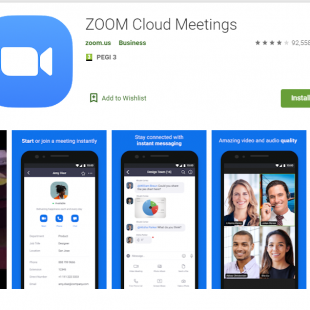Stranger, meet WiFi
The not-so-sexy risks of having unprotected Airbnb networks
A solid Wifi connection is now considered essential by most guests looking for a short-term rental on Airbnb. Most hosts, especially in cities, will find that their booking requests drop dramatically if internet is not included. Still, that doesn’t mean that handing over your WiFi password to your guests, leaving your network unprotected, or having your router out on display are particularly good ideas. This is because as the host and connection provider, in most countries you are still legally responsible to make sure your guests don’t break rules using your connection.
Airbnb and Wifi: a torrent of legal issues waiting to happen?
The commonest type of legal snafu by far is copyright infringement. While in 2018 most guests know that they could be breaking the law when streaming or downloading media and entertainment, if you don’t provide reminders and enforce limits you will still be hit with legal notices. A family with kids can easily eat up all your bandwidth on streaming and playing games, while those on a short business trip will often need to download files of a confidential nature.
Depending on the jurisdiction, legal enforcement typically starts small and escalates as more infringements are registered on your address.
- Warning messages and letters sent by your ISP
- Throttling of internet speeds and eventually, total discontinuation
- Cease and desist letters
- Legal fees and fines submitted by copyright holders
Airbnb Hosts face legal repercussions for guest WiFi misuse
Airbnb hosts sharing their negative experiences online are often surprised when they’re hit by a legal fine which could have been avoided, mentioning surprise fines imposed that run into the thousands.
- In a thread an Airbnb host in Germany speaks of being contacted by a lawyer working for an international movie studio and the harrowing experience of being sued for illegal use of the internet by a guest.
- In another German case, Margherita “was forced to pay 1090 Euros to Warner Bros.”
- Riem from Copenhagen also found it difficult to find information about how to handle a fine for illegal movie download by an Airbnb guest, after renting out a room.
- Mary, from Flagstaff, Arizon admits that she made a mistake when she “freely gave password information to guests to use” leading to her ISP issuing warnings of cutting her service after illegal copies of movies were downloaded by different Airbnb guests.
What to do about it
Even owners with basic computer skills can ensure their vacation rental WiFi remains safe and secure for guest use by following a few simple steps. These include:
- Carrying out regular firmware updates;
- Setting up a separate network for guests, encrypting both networks, and never using the guest network yourself;
- Blocking peer to peer and torrent traffic;
At Rawstream we believe in protecting both guests and hosts with the least possible disruption to either. You can still continue to offer free WiFi but restrict access to peer to peer file sharing services by using Cloud DNS filtering and by blocking p2p downloads, helping avoid hefty legal fees.
Get in touch with us at hello@rawstream.com!




